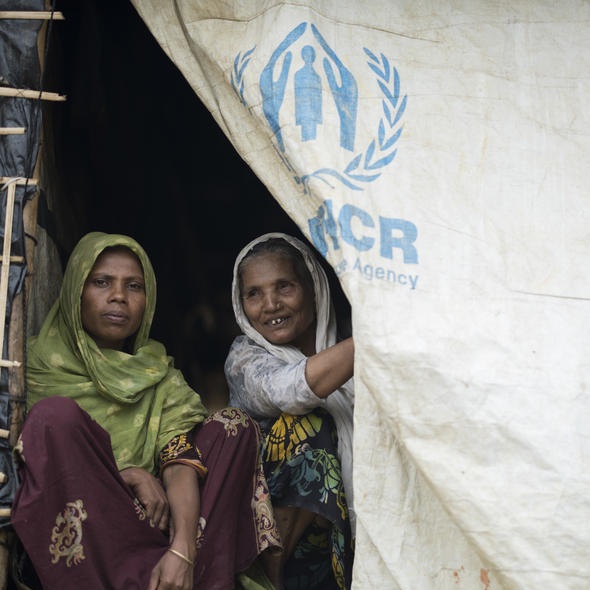Evaluation of Community-Based Protection and Solutions Programme in Priority Areas of Return and Re-integration in Afghanistan, Key Informants Interview - December 2021
Afghanistan, 2021
Get MicrodataIdentification
UNHCR_AFG_2021_PARR_December_KII_v2.1
Evaluation of Community-Based Protection and Solutions Programme in Priority Areas of Return and Re-integration in Afghanistan, Key Informants Interview - December 2021
| Name | Country code |
|---|---|
| Afghanistan | AFG |
Other Household Survey [hh/oth]
Since 2017, the United Nations High Commissioner for Refugees (UNHCR) has been supporting durable solutions aimed at returns and reintegration through its Community based Protection and Solutions Programme Response (Co-PROSPER) in Priority Areas of Return and Reintegration (PARR).
Initially supporting 1,347,207 individuals in 20 PARR locations in 11 provinces, in 2021, the programme was then further expanded in December 2021 to an additional 1,423,775 individuals in another 20 PARR locations in 19 provinces. In order to establish a baseline for the population prior to intervention, IMPACT conducted a Socio-Economic Vulnerability Assessment (SEVA) of the 20 locations.
Between 22 November and 5 December 2021, IMPACT interviewed 2,031 households in each of the 20 new PARR locations on household vulnerabilities, community leadership inclusivity, service quality and access, livelihoods and economic outlook, and community relations and stability.
Key Informant (KIs) interviews were conducted to assess community leadership in each of the 20 new PARR locations to provide indicative information on infrastructure, service presence, stakeholder presence, and conditions faced by specific displacement groups in each site. The KI survey also aimed to provide additional information on each site and location to complement HH survey findings. Nine KIs were interviewed in each location (except for two locations where certain population groups were absent).
Aggregate data [agg]
Key Informants
Version
v2.1: Edited, cleaned and anonymised data
2022-05-30
Scope
The scope includes:
- displacement status
- displacement intentions
- local community structures
- Women's Empowerment
- conflict resolution mechanisms
- Employment and Livelihoods Opportunities
- Cooperatives
- Education
- Access to health
- Protecion
- Shelter (housing, land and property)
- PARR Impact
| Topic |
|---|
| Health and Nutrition |
| Protection |
| Community Services |
| Livelihood and Social cohesion |
| Peace Building/Conflict Prevention Sector |
| Income Generation |
Coverage
Shash Pool and Qashqa, Nilli, Tarakhail Daag, Ghaziabad, Aka Khail Area, Laghmani, Qala-e-Nasro & Bini Warsak, Majboorabad, Charbagh, Daman, Shekh Mesri, Aziz Khan Kas, Noor Abad, Sakhi Camp & Qalin Bafan, Sher Khan Bandar, Loya Wala, Mirwais Mina, Kahdistan, Jebrial
Identified key informants representing targeted population groups
Producers and sponsors
| Name |
|---|
| UNHCR |
| IMPACT |
Sampling
Key Informants (KIs) were interviewed to provide key demographic, sectoral, and accessibility information at the site level. In each location (except two where the population groups were absent) nine KIs were interviewed to provide in-depth insight. KI interview results are indicative, providing an indication of conditions faced by particular groups in each location, but did not provide a representative sample of the population.
The key informants who took part in the KI interviews were selected due to their in-depth understanding of the PARR areas. These were local leaders who may have beenselected either formally or informally, and represented either refugee-returnees, IDPs, host communities, or a combination of these three groups. As such it was aimed to have 3 KIs per population group, for approximately 9 interviews for each of the 20 PARR locations.
Data collection
| Start | End |
|---|---|
| 2021-11-21 | 2021-12-13 |
| Name |
|---|
| IMPACT |
Data Access
UNHCR, IMPACT (2021). Afghanistan: Evaluation of Community-Based Protection and Solutions Programme in Priority Areas of Return and Re-integration in Afghanistan, Key Informants Interview - December 2021. Accessed from: https://microdata.unhcr.org
Contacts
| Name | Affiliation | |
|---|---|---|
| Curation team | UNHCR | microdata@unhcr.org |
Metadata production
UNHCR_AFG_2021_PARR_December_KII_v2.1
| Name |
|---|
| UNHCR |
2022-07-04
